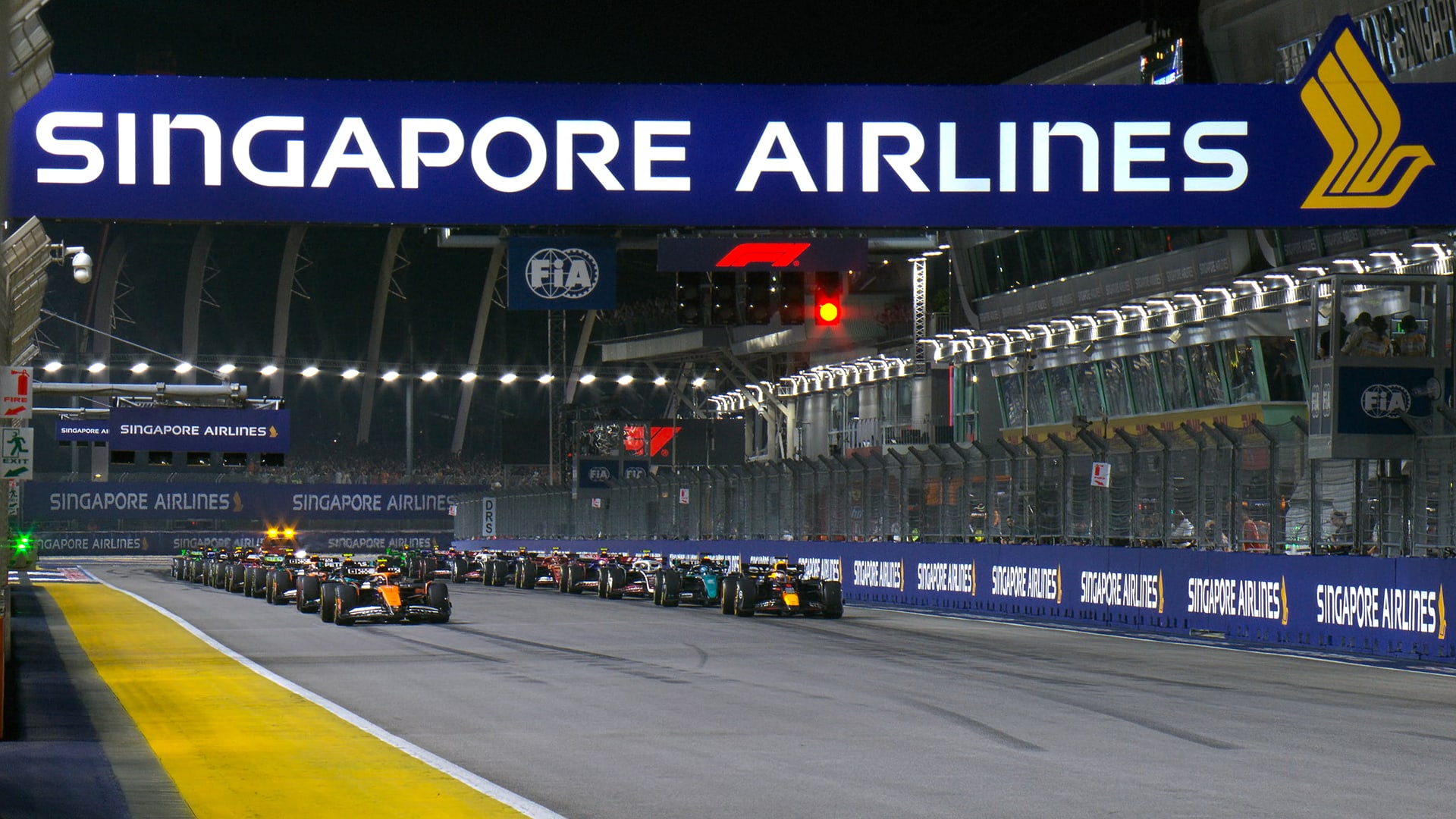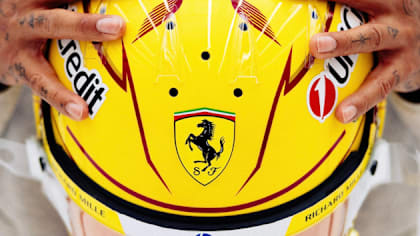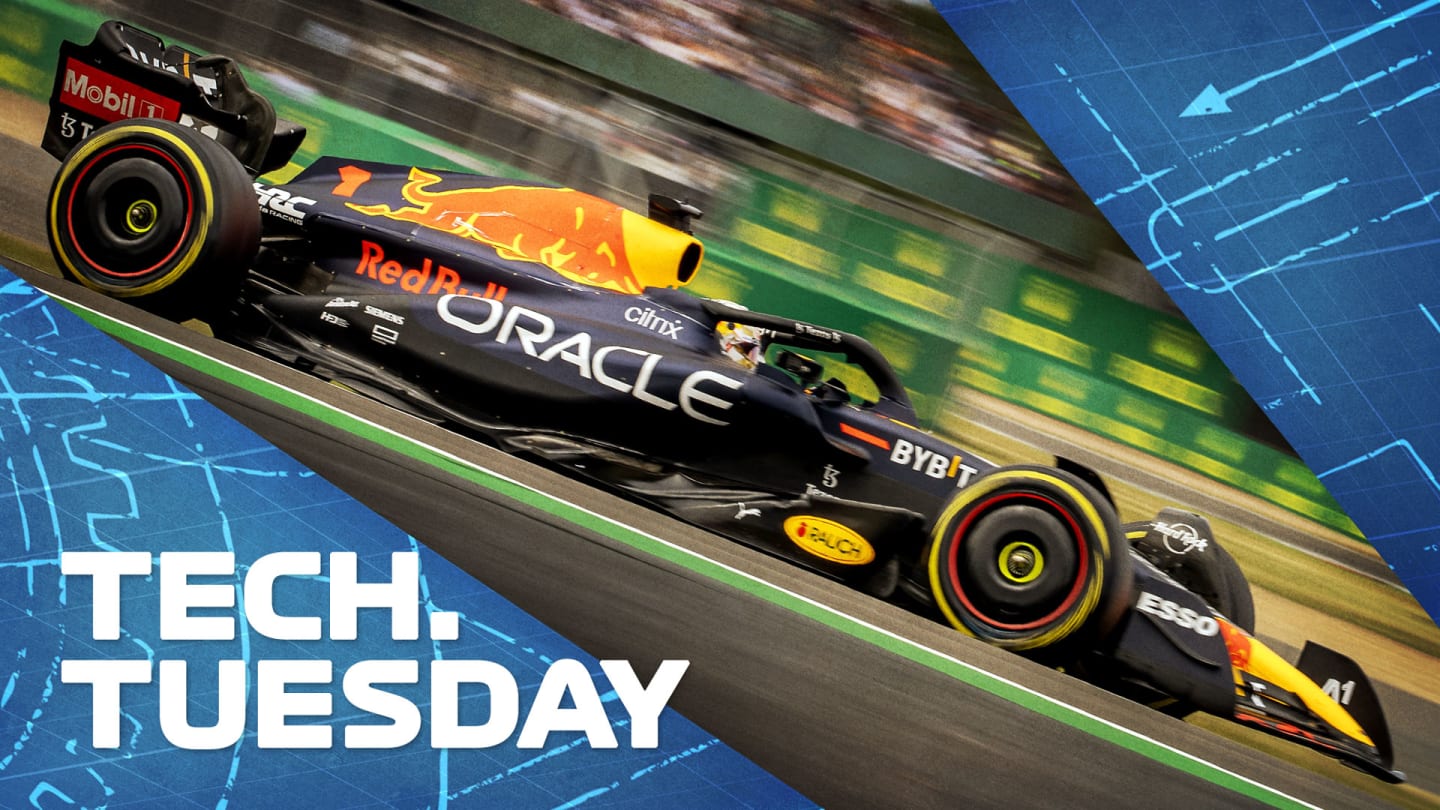
Technical
TECH TUESDAY: Analysing Red Bull's radical updates for the British Grand Prix

Share

Silverstone saw major car upgrades from Mercedes, Alpine, Aston Martin and Williams – but Mark Hughes focuses on those brought by championship leaders Red Bull. Giorgio Piola provides technical illustrations.
Given the great diversity of sidepod designs in this first year of the new aerodynamic regulations, it’s significant that there seems to be a convergence towards either the Red Bull waisted undercut ramp style, or Ferrari’s bluff outwash-favouring style, with only Mercedes the outliers with their ‘zero’ pod concept.
Aston’s original concept was replaced at Barcelona with a more Red Bull-like bodywork (further refined at Silverstone), Williams’ original Mercedes-like ‘zero’ concept was replaced at Silverstone by something much more Red Bull-like while Alpine’s Silverstone upgrade introduced a Ferrari-like trench in the sidepod’s upper surface.
The trend-setting Red Bull, meanwhile, received further tweaks, which appear to have been very productive, although only glimpses of the speed of the car were shown in between Max Verstappen’s yellow flag-compromised qualifying and his debris-compromised race.
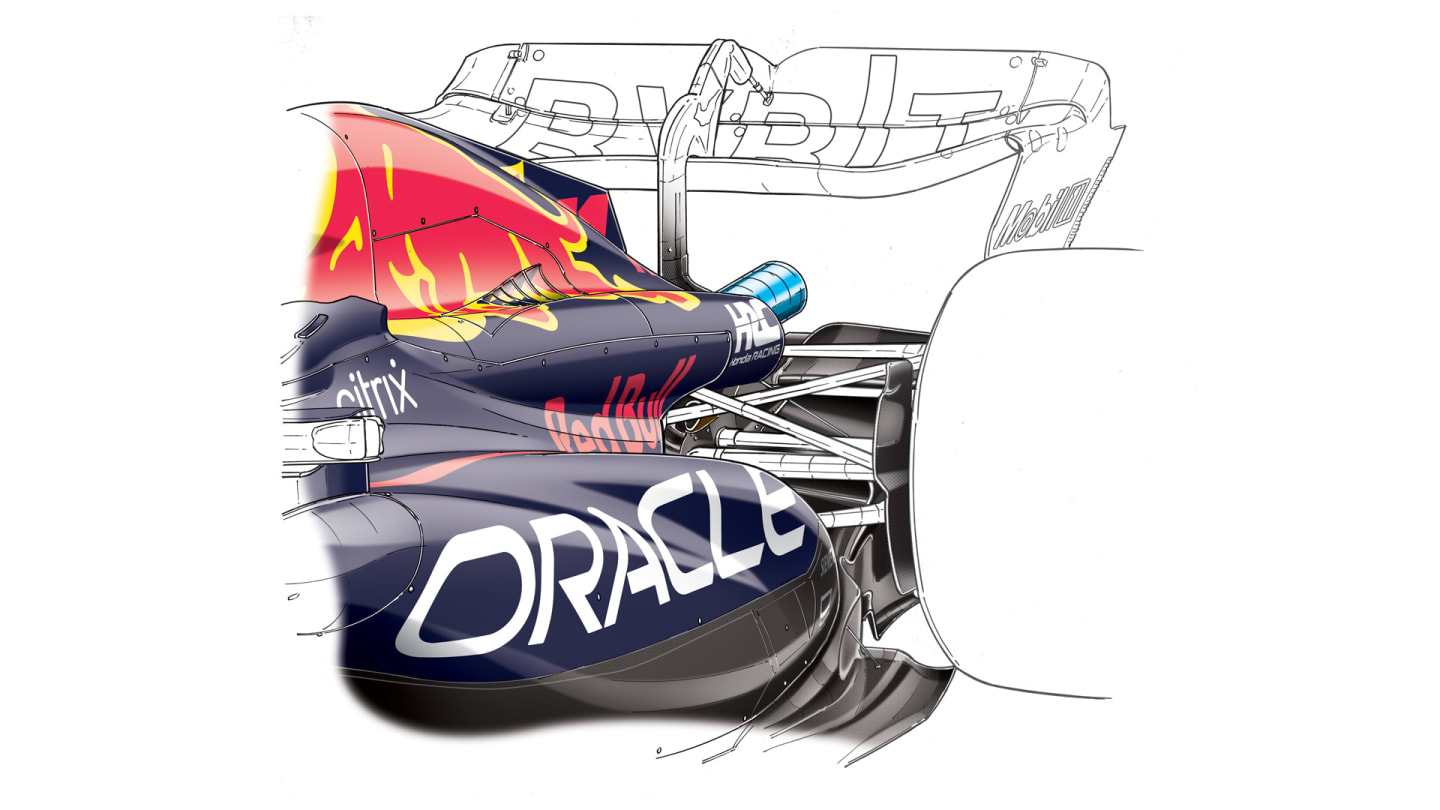
The new extended ‘shelf’ section between the engine cover and sidepod increases the cooling capacity but in a way which may also enhance the aerodynamics by forming an external channel through which to accelerate the airflow.
The most visually obvious of the changes to the RB18 was its new engine cover, specifically the lower three-quarter area, linking the upper sidepod to the cooling exit between the rear wing and lower beam wing.
This section has been flared out significantly, forming an almost shelf-like area and creating a channel between it and the downward ramp of the sidepod. Red Bull says it is to give them more cooling options for the forthcoming races. The increased volume of the cooling channels from the radiators to the rear outlet created by this modification will undoubtedly increase the car’s cooling capacity.
Usually though, increasing the cooling capacity involves compromising the aerodynamics. But with this update Red Bull may have found a way of improving both cooling and aerodynamics.
Together with cooling slats which have been re-sited from just behind the cockpit to further back and above the new ‘shelf’, the airflow downwashing over the top of the sidepod’s downward ramp now appears to have a more clearly-defined route, with the ‘shelf’ effectively defining a tunnel. The speed of the airflow over that ramp as it makes its way to the area between the rear wheel and the diffuser exit plays a crucial role in energising the airflow coming through that diffuser and therefore how hard the underbody is working.
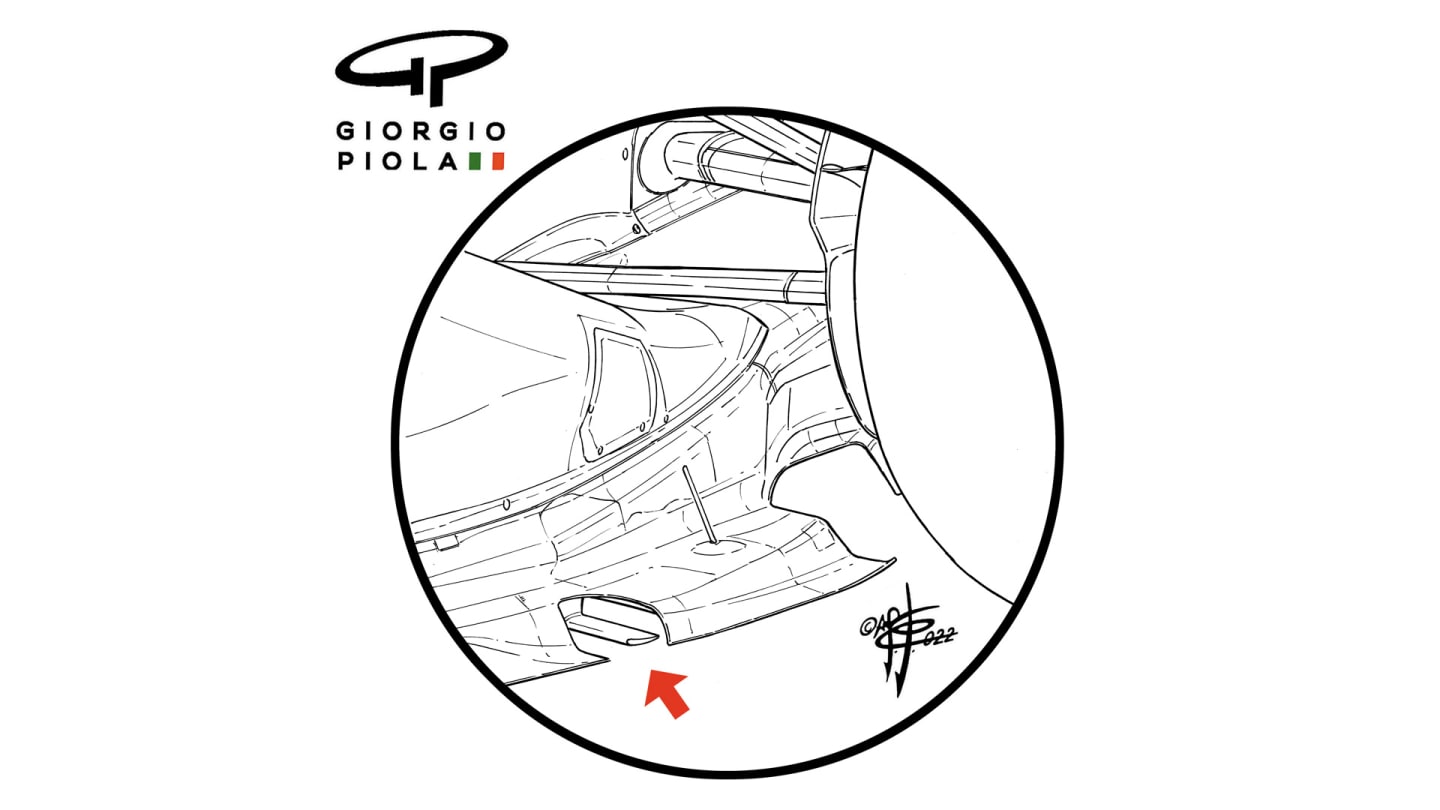
The ‘tongue’ within the cut-out towards the rear of the floor is very much like that introduced by Ferrari in Barcelona.
The new more tunnelled route over the sidepod could well be helping accelerate that flow harder than before – and the relocation of the cooling slats from near the ramp to the upper surface of the ‘shelf’ and out of the way of the ramp should further enhance the flow, as the used warm air exiting the slats is aerodynamically disruptive.
MUST-SEE: Vettel drives Mansell's iconic 1992 Williams FW14B at Silverstone
This change was accompanied by a tweak to the Red Bull’s floor, with a tongue-like vane within a cut-out towards the rear of the exposed section of floor. This is like that introduced by Ferrari at Barcelona and is believed to to relieve excess pressure when running at close to ground level, and thereby inhibiting stall and subsequent bouncing. It effectively allows the car to be run lower.
It’s clear that cost cap or not, the development war is very much ongoing.
YOU MIGHT ALSO LIKE

Video MUST-SEE: How new Ferrari driver Hamilton’s first day at Maranello unfolded
Report Jarno Opmeer and Bari Broumand take victory in Rounds 2 and 3 of 2025 F1 Sim Racing World Championship
FeatureF1 Unlocked F1 QUIZ: Spa-Francorchamps special – Test your knowledge of Grand Prix history at the historic Belgian track
News Hamilton shares first look at striking helmet design for new Ferrari chapter
